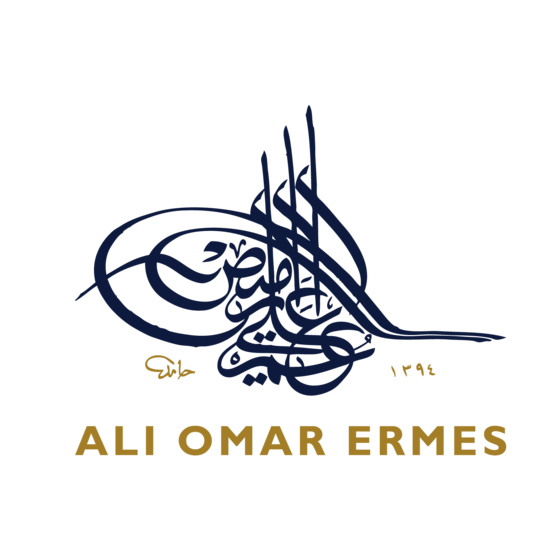The Positive La: The Power of the Positive No and the Virtues of Standing Firm in One's Principles
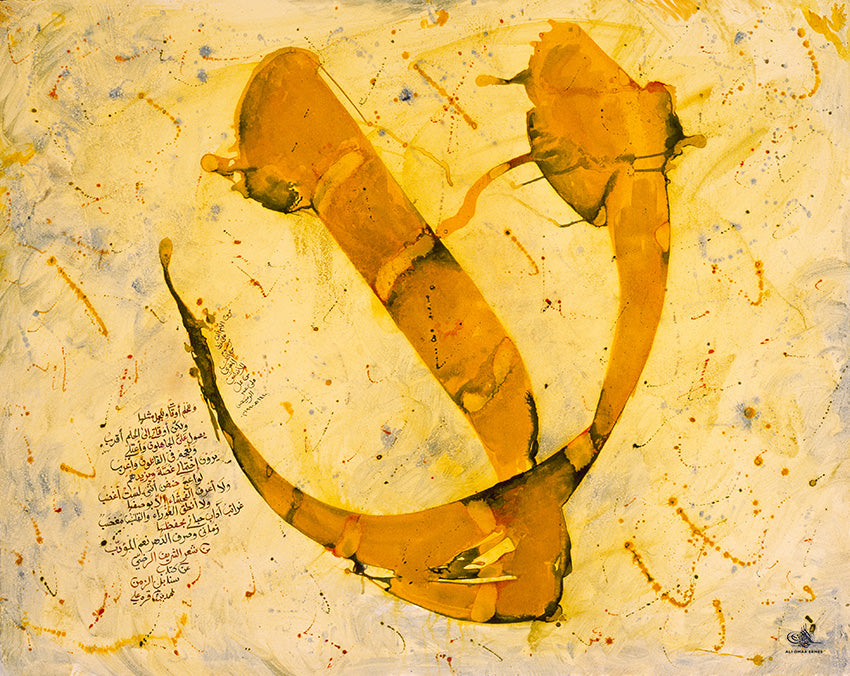
In Ali Omar Ermes' painting, "La," the concept of the "positive no" is explored, representing the steadfast refusal to succumb to injustice and untruths. The inscription from Sharif Al Reda extols the virtues of the individual who maintains high moral principles while also being forgiving in nature, becoming a subject of envy for others.
This thought-provoking artwork, produced in 1990 and measuring 153cm x 123cm, is made with acrylic and ink on paper. It can currently be found in the Written Art Foundation in Germany.
Other poets who have explored the power of standing firm in one's beliefs and principles include Nizar Qabbani and Rumi. Qabbani's poem "Love and Freedom" is a declaration of the importance of love and freedom in the face of tyranny, with lines such as "Love is a revolution like no other / It has toppled empires and thrones / And it has drawn maps that geography has not known." Rumi's poem "The Guest House" is a powerful assertion of the importance of embracing all experiences, even the difficult ones, with grace and hospitality, with lines such as "Welcome and entertain them all! Even if they're a crowd of sorrows, who violently sweep your house empty of its furniture, still, treat each guest honorably. He may be clearing you out for some new delight."
Ermes' painting serves as a reminder of the importance of upholding one's values and beliefs, even in the face of opposition. By combining forgiveness with unwavering conviction, we can become a source of inspiration and admiration for others. "La" celebrates the power of the "positive no" and the strength that comes from standing firm in one's principles.
Leave a comment
Also in ARTWORKS IN INSTITUTIONS & CORPORATIONS
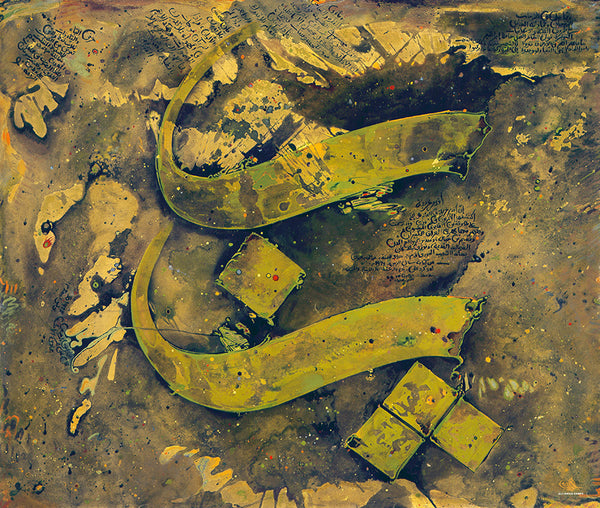
BP: Treasures of the Earth - A Poetic Reflection on Environmental Responsibility
Nestled within the brushstrokes of this breathtaking artwork lies a powerful message about our planet and the role we play in preserving its beauty. Ali Omar Ermes has masterfully captured the essence of environmental responsibility, showcasing the natural wonders of our world as gifts from a higher power. This 150cm x 120cm masterpiece, painted with acrylic on paper in 2002, is a true work of art, now housed in the prestigious British Petroleum collection. Through the power of poetry and art, Ermes has created a reminder of the beauty and fragility of our world and the importance of preserving it for future generations.
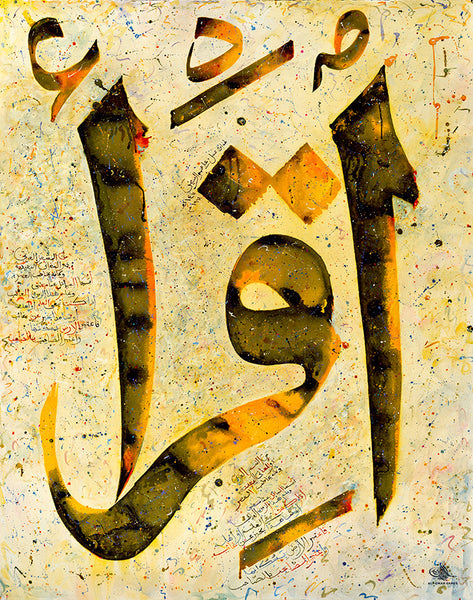
Iqraa: Read! The Message of Sala'a ibn Amr on Building a Just Society through Consultation and Dialogue
In Ali Omar Ermes' painting, 'Iqraa: Read!,' the inscription from a poem by Sala'a ibn Amr comments on the essential requirements for building a sound society. The poem likens the building of an equitable order to the construction of a house, emphasizing the importance of strong foundations and the use of the right materials. It also highlights the crucial role that consultation and dialogue play in fostering a healthy and harmonious society, warning against the dangers of allowing evil forces to gain dominance. Ermes' painting serves as a reminder of the crucial role that consultation, dialogue, and strong foundations play in building a healthy and harmonious society. By heeding the wisdom of Sala'a ibn Amr and working towards these goals, we can all contribute to the creation of a more equitable and just world.
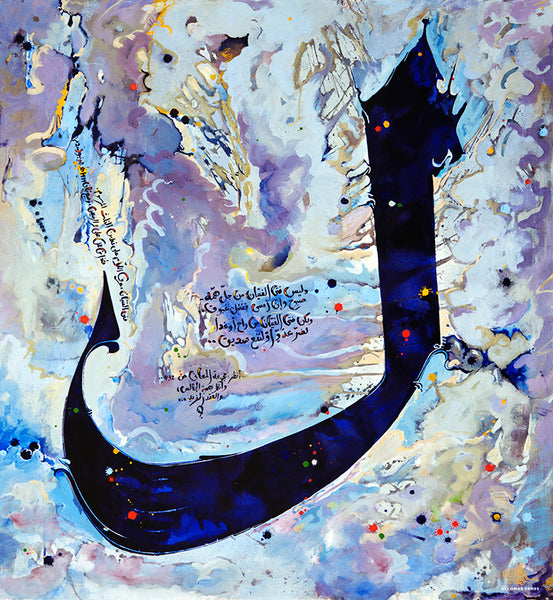
Fetal Fityan: The Dignity of Purpose - Ali Omar Ermes' Exploration of Ethics and Social Justice through the Letter Lamm
In Ali Omar Ermes' painting, the letter Lamm is depicted as solid and dominant against a backdrop of various challenges and conditions. The painting is inspired by a poem from the reference source 'Bahjat Al Majalis' by Ebni Abdel Birr Al Qurtobi, a renowned jurisprudent and literature scientist from the 10th century. The poem speaks of the qualities of a true dignified individual, stating that they are not concerned with satisfying their own whims and desires, but rather are constantly striving to be of benefit to humanity. Ermes' artwork serves as a reminder of the importance of upholding one's values and principles, even in the face of challenges and difficulties. By striving to be of benefit to others and standing up for what is right, we can embody the qualities of a true dignified individual as described in the poems of Al Qurtobi's 'Bahjat Al Majalis,' a timeless collection that serves as a valuable source of wisdom and guidance.
